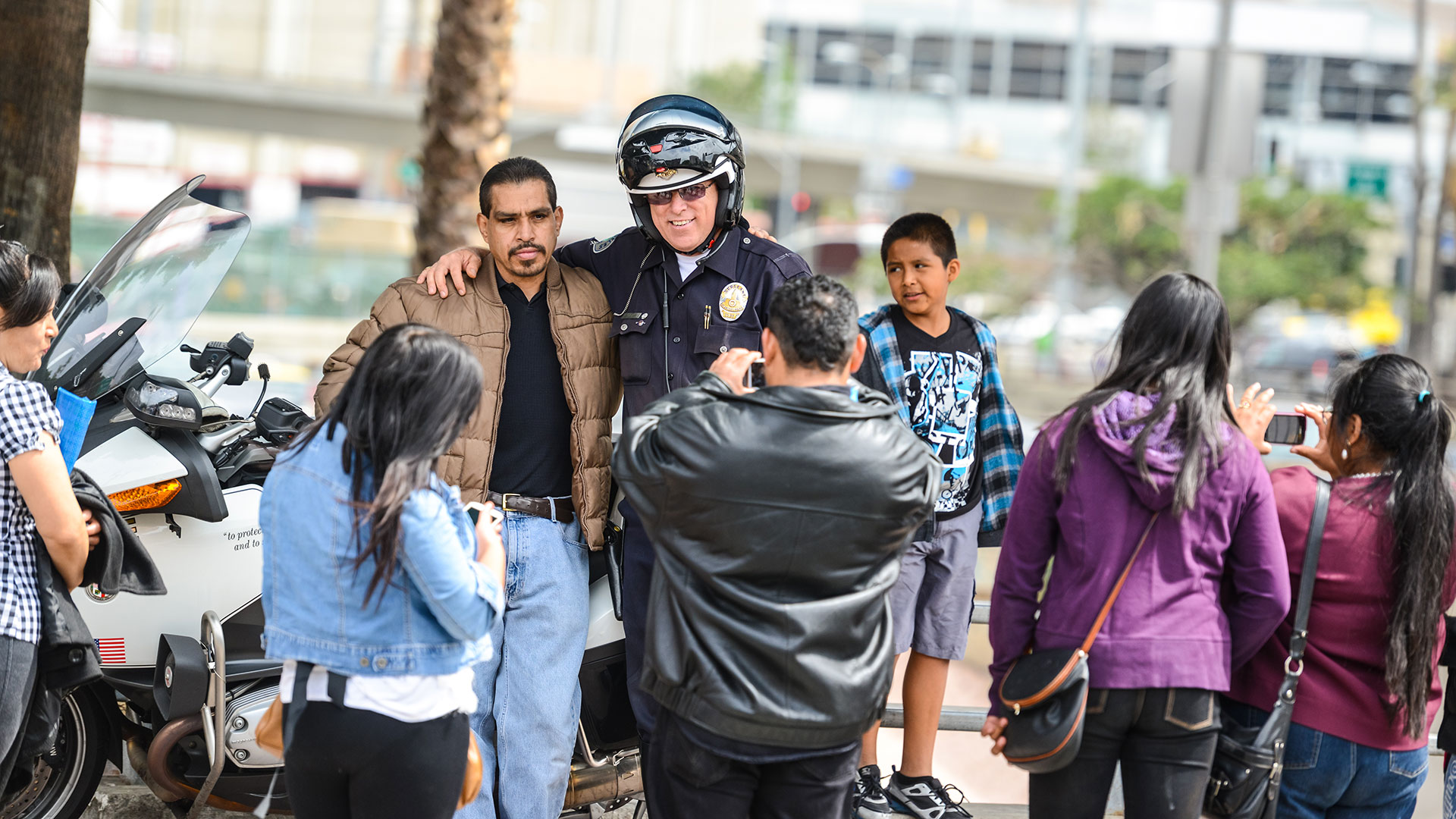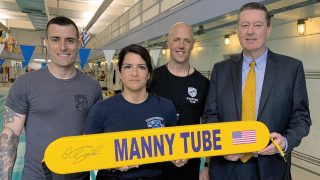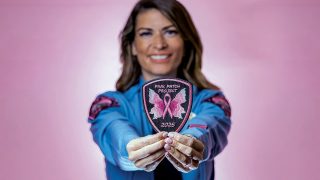
Cautious, measured and stilted communications rarely spark a connection or foster a lasting relationship. It’s when you have a genuine active listening conversation that you become memorable and sought out. When navigating encounters, be attuned to the individual’s value statements. Value statements are tidbits of information gleaned from conversations that reveal a person’s ideology but, more important, their “personal code.” Personal codes are a person’s ultimate filter to all that is right and wrong. The importance of value statements can’t be overstated. Value statements give you an area to circle back to if the conversation stalls and help you in formulating a response that may resonate with the individual of interest. No TV public service announcement, mission statement or billboard will ever be as effective as the spoken word, accompanied by sincere body language and complementary microexpressions.
Sharing a meal historically has led to spontaneous conversation, straight talk and the all-important peacekeeping compromise. To understand a culture, take every opportunity to stop by and take part in a church fundraiser or community gathering to build bridges. There’s just something about a person of authority balancing a paper plate and walking among the participants to find a seat. Add to this the concept of perceived obligation. When you make an effort to connect, in most instances, the other party feels an obligation to give something back. For example, after receiving an unexpected Christmas card, some people may immediately add the sender to next year’s list and rush to mail a card to them. Another common reaction is when a stranger opens a double door for you, you get the next one. Should someone unexpectedly buy your lunch, the unusual response is, “I’ve got the next one.”
Some may wonder, how does this simple act lead to value or enhance social order and crime suppression? Quick lesson: People are threaded together. The good and bad share the same general orbit. The senior citizen, downtrodden individual or local preacher may have blood ties or be linked to one of the most significant criminal targets in the area. The least of the inhabitants of an area can tell you more about how, who and when things happen than an army of criminal analysts or an FBI Uniform Crime Report. Two of my favorite quotes when teaching active law enforcement or college students is: “Chance favors the prepared mind” and “Those who dare, win.” Always scan your environment for opportunity and be available.
Those who have studied areas that breed crime know that some of the downcast burn-barrel prophets were yesterday’s hardened street thugs. Take every opportunity to step out of the isolation of the badge to meet and engage with the inhabitants in their own backyard. If I were the “emperor of police,” I would provide reimbursement to encourage zone officers during their shifts to drop by community functions with controls and oversight. Notice I didn’t say management, crime prevention specialists or politicians. I’m talking about the officers who patrol day in and day out in the environment of concern.
I can already hear the taxpayers, doughnut jokes and complains of “We pay the police, why should we feed them?” I also hear some beat cops saying, “Are you kidding, we have to deal with the inhabitants enough as it is, why on earth would we subject ourselves to more abuse?” And another thing, in some zones, courtesy can be interpreted as weakness. Believe me, I’m aware, the trick is to present an open, sincere, positive spirit and, at the same time, a quiet ever-present air of confidence.
Successful interaction doesn’t happen overnight — be patient. Measuring success can be difficult and must be viewed in baby steps and small victories. A few years before I retired, I was leaving a deposition dressed in my business best, carrying my “add to the look” briefcase. While strolling toward the exit, I noticed a man leaning against the wall, scratching his head and shuffling his feet trying to decipher a legal document in the hall of a small west Florida courthouse. I’m guessing the man to be in his mid-40s, but he looked much older. His face was a canvas of disappointment, leathered and etched with years of toiling in the oyster industry. The area was well known as anti-government. I approached the guy and asked, “Can I take a look at what you’re reading?” The guy looked at me a little cockeyed and asked me if I was an attorney. I responded, “Nah, just a guy with a little understanding of the system.” The document in question was a protection order. I explained to the guy what options were available, timelines, things not to do and handed the paper back. The man took the document, smiled and thanked me. As I nodded and turned to walk away, he asked, “Why are you helping me?” I can’t recall my exact response, but I do remember giving him my law enforcement business card and telling him to give me a call if he had additional questions. Note here: I didn’t ask him for anything; I just took a moment to connect. Looking back on this encounter, the only thing missing was a paper plate of local seafood and an old, weathered picnic table in the shade. Over a year later I received a call at my desk. It was my spontaneous courthouse contact giving me some intelligence on an unsolved crime in that anti-government area.
Here is a simple evaluation on how you know you’re making headway in developing meaningful connections: Look for smiling eyes, relaxed body language and spontaneous engagement in a playful tone. You know you’re really making progress when someone makes a joke about how much you can eat or says, “You never come around unless there’s food.” My gold standard for measuring success is when a local asks to meet you in a secluded place, or you get an unsolicited phone call saying, “I need to tell you something, but it didn’t come from me.” Most times I can work with that.
For those who are shortsighted, emotionally fragile or poor communicators, don’t attempt this before you recognize and work on your human connection deficiencies. More than any time in history, there is help available to improve your people skills. One such resource is mini-lessons provided by Charisma on Demand on YouTube.
You see, relationships are like business quid pro quos. Improving your standing in a neighborhood or subculture is like cooking with a conventional oven, not a microwave. Another analogy is, think of a healthy, lasting relationship like a bank account. If you only make withdrawals and never make deposits, one day your account will be locked down.





